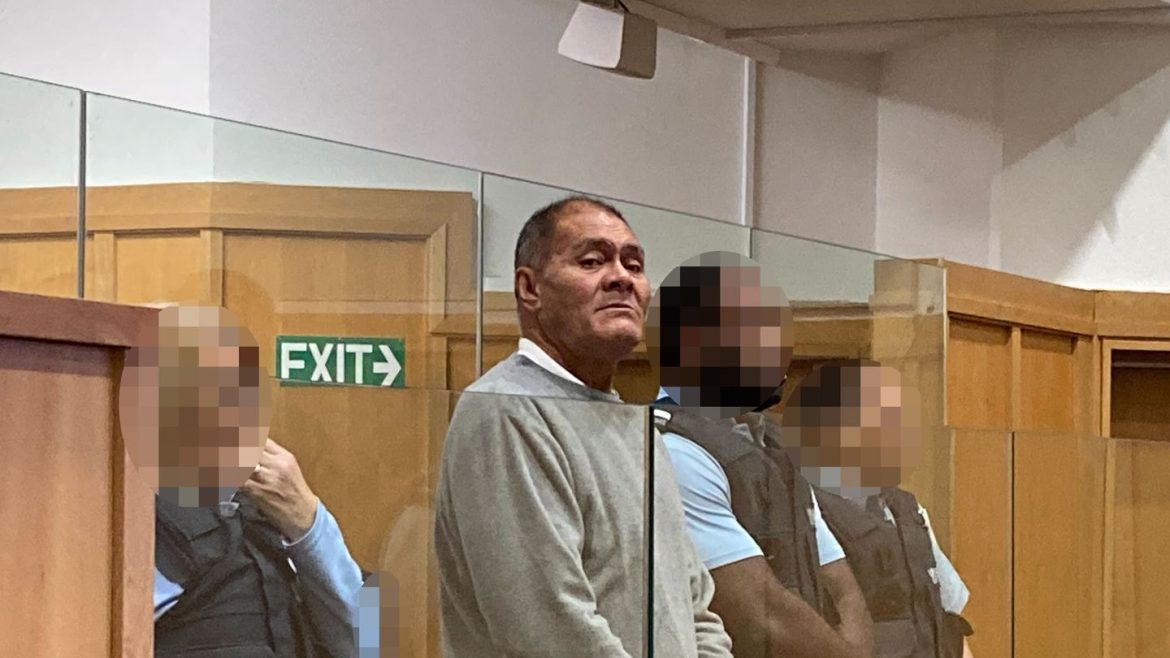A Tongan man who kicked and punched his partner to death as she lay on the floor must serve at least 11 years for her murder.

Peter Vi, 59, was jailed after he was found guilty of beating Georgina Ngataki with both arms while she was saying “don’t”.
The 55-year-old mother and grandmother suffered massive head injuries.
Vi’s actions were labelled “cold blooded” and “callous” from the afternoon of September 22, 2021, in which he left his partner, Georgina Ngataki, to die on the floor of her Wellington St flat, surrounded in blood after a brutal attack, the New Zealand Herald reported.
Ngataki’s bereaved whānau got to share their frustration, anger, and grief at the loss of a beloved grandmother, mother, sister, and aunty at Vi’s sentencing in the High Court at Hamilton recently.
Vi launched his frenzied attack of kicks and punches after getting into an argument with Ngataki while drinking.
Court documents state after bashing her, he was heard to say, “Oh no, she’s not dead” before leaving the 55-year-old on the floor, changing out of his shorts, and fleeing.
He would return minutes later.
Not to seek help, but pick up the remainder of his box of New Zealand lager beers he had been drinking.
Vi first appeared in the Hamilton District Court in September 2021 charged with wounding with intent to cause grievous bodily harm.
That charge was upgraded to murder after Ngataki later died of her injuries, which included a concaved skull and other trauma to her head.
Crown prosecutor Rebecca Guthrie said the impact of Ngataki’s death on whānau had been significant and long-lasting.
She told Justice Mathew Downs that whānau who were in court to see him jailed would hear the full extent of Vi’s “callous” attack for the first time.
It was callous, she said, as the 59-year-old left Ngataki on the floor without seeking help, while the blows of his kicks and punches were so loud they could be heard by neighbours.
She was also vulnerable, both due to the size differential between the pair and also her having suffered a brain aneurism some years previously.
‘Insurmountable horror’
Victim impact statements of Ngataki’s whānau detailed not only being confronted with the “insurmountable horror” of her death, but the frustrations of Covid-19 restrictions at the time, which saw Auckland under lockdown and residents unable to leave the district.
Many whānau lived in Auckland and while few of Ngataki’s siblings managed to get approval to cross the border, many didn’t, leaving them still struggling with their grief.
Ngataki’s mother was stuck north of the border.
“As Georgina’s mother, not being able to be there … because of Covid restrictions at the time was something that words will never be able to describe.
“The absolute horror that I had to endure at that time was insurmountable,” describing Vi’s offending as “selfish”, “inconsiderate”, “heinous” and “destructive”.
Instead, she had to see her daughter’s last moments alive via video call from family who were at her bedside in Waikato Hospital’s intensive care unit.
“It was then that my heart broke and I felt powerless to help Georgina.
“It was at that point that I became aware that the situation was truly horrific and that this was something that I would not be able to fix.”
‘Oh no she’s not dead’
Justice Mathew Downs explained how Vi and Ngataki moved into the same apartment complex on Wellington St in 2018.
The pair, who both suffered from alcohol addiction, became friends, and soon after a relationship developed.
However, their relationship was punctured by arguments and violence handed down by Vi.
Five months before her death, Ngataki was hospitalised after Vi struck her in the face with such force it rendered her unconscious. She woke with bruising, bleeding, sore ribs, a broken nose and a concussion.Despite the severity of the assault, the relationship continued.
Just after 2pm on the day she died, Ngataki and Vi returned to her unit, with Vi carrying a box of New Zealand Lager.
Shortly afterward, the pair got into an argument over money.
During the argument, Vi punched and stomped Ngataki on the head several times and afterward said aloud to himself: “Is she dead?”
“Oh no she’s not dead,” he said.
A neighbour, who had heard the “audible thuds” went to check on her and saw Vi kneeling over striking her with both arms, and Ngataki saying “don’t”.
He then changed into track pants, while still in her unit, before heading to his own unit at 2.36pm.
At 2.49pm, he left his unit, this time changing all of his clothing, including his jandals, and went to Ngataki’s unit to grab the rest of the beer, then left a minute later.
He’s then seen leaving the complex and walking down Wellington St.
Police arrived at 3.07pm, and after initial confusion about which unit they were at, they arrived to find her unconscious and with blood around her head and on the cushions of a nearby couch.
When questioned by police before she died, Vi said that during an argument Ngataki banged her head on a table five times and that she was well when he left.
He was questioned again after she died, and said that he had slapped her with the back of his hand three or four times “but not with any force”.
‘You allowed her to die’
Justice Downs told Vi there were multiple aggravating features of the case.
The magnitude of the violence, breaching her trust – “she was entitled to look to you for protection, not harm”, and the “cold-blooded, and indeed callous” actions after attacking her; only returning to the flat to get his beer.
“At no stage did you seek medical attention for Ms Ngataki or raise the alarm.
“In short, you allowed her to die.”
Vi, of Tongan descent, had no family in New Zealand and disputed he was an alcoholic, instead, he believed he was a “binge drinker” and often only argued with Ngataki when they were drinking together and “sometimes” hit her.
“Plainly you did,” Justice Downs told him.
The earlier assault on Ngataki was also serious enough to warrant a higher starting point than the 10-year minimum for murder.
After applying discounts for his late guilty plea, just days before the March trial was due to start, and his personal circumstances, Justice Downs jailed Vi for life, with a minimum term of 11 years and nine months.
This story was first published by the New Zealand Herald. Edited by Kaniva News.







